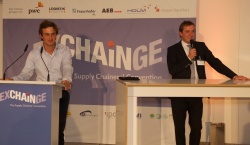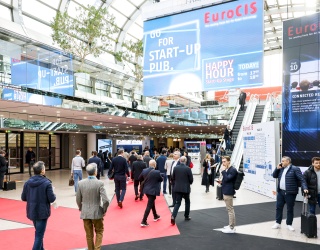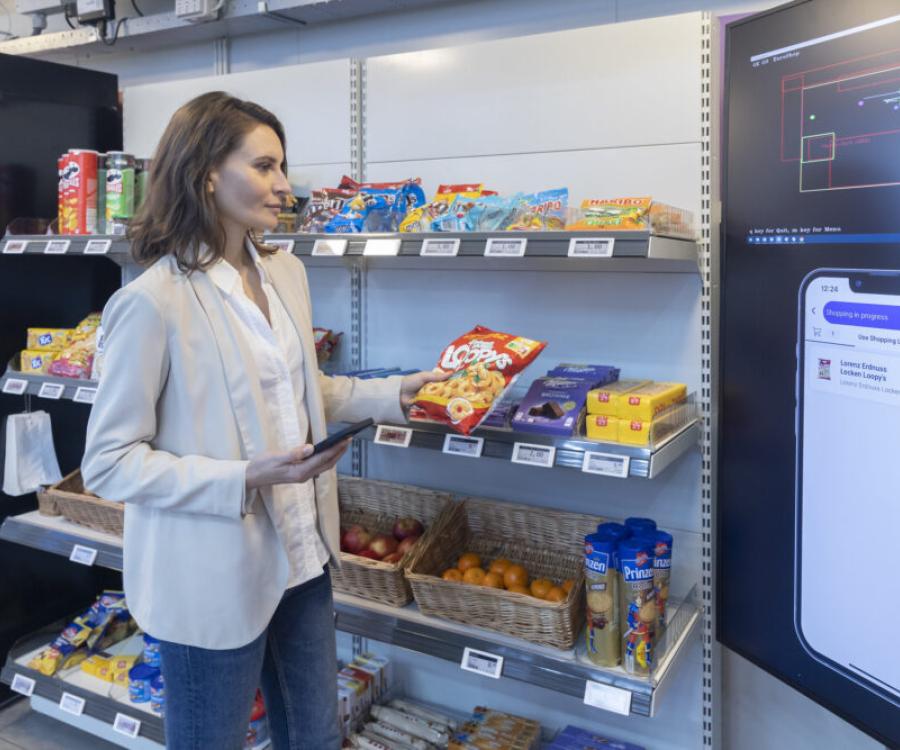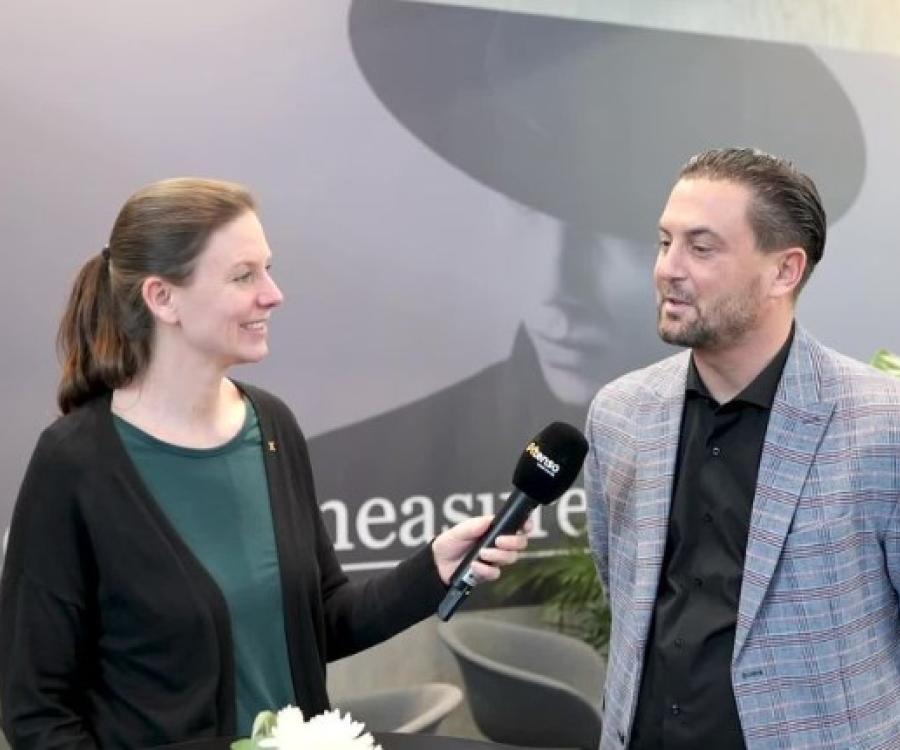
Supply chain managers are the primary suppliers of change. That was the conclusion of the EXCHAiNGE management conference, held on June 24 and 25, 2014, in the new Kap Europa conference center in Frankfurt am Main.
Over 150 supply chain management and operations experts gathered to discuss and develop ideas, plans, and solutions for how businesses can adapt and cultivate new technologies and social trends like industry 4.0 and the sharing economy.
Copenhagen-based social business strategist and visionary Jonathan Wichmann delivered the opening keynote, emphasizing the fundamental shift in how people do business. “The trend is away from a consumption-oriented society and toward a sharing economy,” Wichmann noted. “Social media saw the creation and sharing of content alone. In the social economy, people are creating and sharing physical objects, services, and much more.”
Wichmann believes this will not only have major long-term consequences on business supply chains but also offer short-term opportunities for demand management, lean operations, and real-time data – such as better forecasts and early warning for risks. To seize these opportunities, supply chain managers must study the new business models of the sharing economy: “Begin by using them yourselves, then implement them,” the social business expert advises. “This trend is not going away,” he cautions.
This change is also driven to a large extent by industry 4.0 and new technologies such as big data or 3D printing, and these technologies have the potential to influence or even destroy established methods and business models of supply chain management in a short period of time – that was the takeaway message of the session entitled “Technology and innovation – next practices.” Dr. Michael Henke, Institute Director at the Fraunhofer Institute for Material Flow and Logistics in Dortmund, moderated this session and the overall conference.
Florian Reichle, a 3D printing specialist at Trinckle 3D, emphasized that 3D printing experts still face challenges such as accuracy, steep costs for high volumes, and product safety – but that development and commercialization is already well underway in the United States. In his presentation, Reichle noted that blogs are fueling a lively exchange among experts around the world, leading to a more rapid transfer of knowledge than many are aware of today.
Daniel Grüßing, Director of Strategic Analytics at Blue Yonder, voiced his support for big data and digitized supply chains, emphasizing that businesses can run detailed analyses of their data and use the insights to adapt their market activities. He cited dynamic price changes in e-commerce as an example. New tools make it possible to modify prices for products and services daily. Grüßing reported that this one measure alone could increase a shipper’s revenues by six percent.
How to respond to change? EXCHAiNGE provides answers
How to respond to trends such as industry 4.0, new technologies, and the crowd? How can businesses prepare for and take advantage of these trends? Presentations, panel discussions, workshops, and simulations provided attendees with many opportunities to reflect on specific ideas, speculate on the future, expand their horizons, and develop solutions for their own needs.
Dr. Robert de Souza from the National University of Singapore delivered the second day’s thought-provoking keynote, in which he explained the lessons supply chain managers could learn from those who manage logistics during natural disasters. One lesson is stronger cooperation and communication along the supply chain – and not just in ordinary circumstances. “When disaster strikes, many different parties work together toward a common goal. How often do we sit down together to solve problems in our day-to-day business?” asked de Souza. He cites risk management, resilience, and the development of a skilled workforce as other key factors here.
The last point in particular enjoyed a broad consensus among all the speakers and attendees at EXCHAiNGE: Qualified, motivated employees are a key element of successful supply chains. Reaching this goal means finding efficient, precisely tailored opportunities for professional development, as Jutta Grebing of the REWE Group and Dr. Frank Sabin of BASF emphasized in their presentations. The experts also advised that in adopting new technologies, businesses should not only develop their workforce but also adapt their traditional management structures. “Large corporations have too many hierarchies and often think in silos,” noted big data expert Daniel Grüßing of Blue Yonder. He is convinced that in the future, rapidly evolving virtual teams will play a greater role in supply chain management and the economy as a whole.
Inspired by the best
The ninth annual Supply Chain Management Award was presented as part of the EXCHAiNGE conference. This year, the award honored GF Piping Systems for its exemplary end-to-end supply chain solution. The supplier of piping systems succeeded in harnessing its supply chain management to develop new services for its customers, lower its logistics costs, and optimize its processes. On the second day of the conference, GF Piping Systems joined co-finalists Paul Hartmann AG, Knorr-Bremse Group, and Bühler AG in presenting their winning ideas.
Inspiration and interaction for attendees
“EXCHAiNGE offered both concrete tips for routine supply chain management and inspiration from areas that don’t always come up in one’s day-to-day professional experience – such as the presentations on humanitarian logistics and the crowd community,” remarked Christian Kaiser, an industrial engineer for business logistics at the DURAG Group, who attended the conference and participated in the discussions. “This experience came from the sessions and also from the lively dialog among attendees from all parts of the supply chain community – from students and professors to solutions providers and of course supply chain practitioners.” The 2015 EXCHAiNGE conference will be held once again in Kap Europa in Frankfurt am Main.
The EXCHAiNGE international business conference is an initiative of the consulting firm PwC, the trade journal LOGISTIK HEUTE, software developer AEB, the Fraunhofer Institute for Material Flow and Logistics (IML), the House of Logistics and Mobility (HOLM), and Messe Frankfurt.
For more information on the Supply Chain Management Award and EXCHAiNGE management conference, please visit www.beste-supply-chain.de and www.exchainge.de.
Source: HUSS-VERLAG GmbH





